|
Marketing
| Regulated Markets |
Importants market of paddy :
| Karnataka: |
Bangalore, Bhadravati, Devanagere, Gangavatti, Lingasugur, Manvi, Raichur, T. Narasipur, Bangarpet, Madurai, Mangalore, Mysore, Tumkur, Bellary. |
| Kerala: |
Ernakulam, Trivendrum, Kozhikode, Nedumudi. |
| TamilNadu: |
Thanjavar, Thiruvannamabai, Villupurm, Nagpattinum, Coimbatore, Erode, Trichirapallai, Pudukottai, Madurai, Dindigal. |
|
| Decentralised Procurement Scheme |
- present policy of the Central Government is for Decentralized Procurement whereby the State should procure and utilize the rice in the Public Distribution System.
- The State has participated in the procurement operation of direct purchase of paddy through the State Civil Supplies Corporation and 4 (four) other state agencies. But major target is put on FCI.
- The State Government through its agencies like State Civil Supplies Corporation, MARKFED, NAFED, PACS and TDCC are engaged in direct purchase of paddy from farmers.
- Out of the above agencies, the State Civil Supplies Corporation Ltd.is actually involved in Decentralised Procurement and procured paddy by is issued under PDS.
- The rice of other agencies of the State Government like NAFED, MARKFED, PACS and TDCC are delivered in the nearby FCI godowns as Custom Milled Rice.
- Now the emphasis is more on direct purchase of paddy from farmers as it helps the farmers in getting minimum support price through account payee cheques.
|
.png) |
| |
Top |
| |
Permanent Direct Paddy Purchase Centre |
.png) |
- The direct paddy procurement functions under Tamil Nadu Civil Supplies Corporation. depending upon the area of paddy cultivation and the season the temporary DPCs were established.
- For the farmers who harvest the crops in the Kuruvai season the DPCs were opened in the month of October and November AND FOR THE Samba farmer it was in January to March.
- online monitoring of DPCs of the Corporation in the state was being done to ensure smooth functioning and proper procurement of paddy from farmers.
- details like ground stock, quantity of paddy procured, cash and gunnies available were being monitored on a day-to-day basis by the Corporation headquarters in chennai and offices in the districts.
- bills were generated at the DPCs using Global Placement Tracing System. This would give details of bill number, the variety of the paddy purchased, number of bags, net weight, purchase rate per quintal, bonus rate per quintal, total value, moisture content and net amount paid to farmers.
- 1300 DPCs were functioning in the state. In Thanjavur district, this included 353 DPCs
The farmers get token from DPCs immediately after the harvesting and based on the token order the DPCs procure the paddy.
- The machineries were provided for free for winnowing the paddy. The winnowed paddy was tested for its humidity, stone and the soil particles. Time : 9.30 AM to 1.30 PM. And 2.30 PM to 6.30 PM
|
| |
Top |
| Mobile/Seasonal Direct Procurement Centres |
|
- The temporary mobile DPCs function similar to the regular direct procurement centers. To avoid the delay in procurement the mobile DPCs were brought.
- In many places because of absence of the DPCs, these temporary DPCs were established. This was operated from February 2011 by Tamil Nadu Civil Supplies Corporation.
- If any farmers or the group of farmers have 300 bags or more and if he informs, then the DPC goes to the area and procures the Paddy Directly in the field. The rules and the regulations applied for regular DPCs apply this too.
- The Corporation's mobile procurement centre will go to the doorsteps of farmers who had harvested 300 bags of paddy and procure them.
|
.png) |
| |
Paddy Purchase Centre
Tamil Nadu |
.png) |
- The Tamil Nadu Civil Supplies Corporation (TCSC) has opened Direct Purchase Centres (DPCs) to procure paddy from farmers in the districts.
- The Government permit the Tamil Nadu Civil Supplies Corporation to procure paddy under the Decentralized Procurement System, by opening adequate number of procurement centres in the Cauvery delta region and other paddy growing areas in the State, in consultation with the District Collectors on need basis.
- The District Collectors of the non-delta areas are also permitted to open Direct Purchase Centres depending upon the arrival of paddy.
- The Registrar of Cooperative Societies is also permitted to procure the paddy through Cooperative Marketing Societies and Primary Agricultural Cooperative Credit Societies.
- The procurement of paddy shall be made as per the Uniform Specifications prescribed by the Government of India, in all the Direct Purchase Centres in the Delta areas and in all Taluk godowns in non-delta areas (except Chennai and Nilgiris Districts) of the State.
- The paddy so procured shall be stocked on behalf of the Government of India for contribution to Central Pool as rice.
Address to contact:
1.Tamil Nadu Civil Supplies Corporation,
Head office Control room,
For complaints: 094451 90660
Paddy procurement complaints: 09445195840
2.Senior Zonal Manager, Thanjavur
Office: 04362-235321, Private: 04362-231909
|
| |
Top |
| Kerala |
|
- Kerala State Civil Supplies Corporation, popularly known as Supplyco is the largest retail chain of essential commodities and consumer goods for the public of Kerala.
- Kerala State Civil Supplies Corporation (Supplyco) is procuring paddy directly from the farmers at the minimum support price declared by the Govt. of Kerala.
- Apart from this Supplyco undertake other schemes for the benefit of the common public of Kerala especially Farmers. Supplyco's paddy procurement scheme is one of such programs.
- In this scheme Supplyco purchases paddy from the farmers at rates fixed by Government of Kerala.
- The Mills selected by Supplyco directly lifts the paddy from the paddy fields and process to rice and issue this rice to the Authorized Ration Wholesalers for distributing the rice to the common people of Kerala under various Government schemes like Annapoorna, Andhyodaya etc.
- With the implementation of this paddy procurement scheme Supplyco ensured that the farmers of Kerala are getting a reasonably good price for their paddy and also made the private millers to procure the paddy at rates higher than the rates offered by supplyco.
- Supplyco also ensure that the good quality rice is available in the ration shops for the poor category people especially BPL card holders of Kerala.
Address to contact:
Manager (Commerce),
Kerala State Civil Supplies Corporation Ltd,
Maveli Bhavan, Gandhi Nagar, Kochi-682020
Phone-control room - 09446400441
e-mail-agmc@supplycomail.com
|
.png) |
| |
Top |
| |
Karnataka |
.png) |
- “A” grade paddy, including Sona, Rajahamsa, IR 64, would be procured at Rs. 1,030 per quintal and other general variety of paddy at Rs. 1,000 per quintal.
- In addition to the minimum support price, the State Government had agreed to give Rs. 100 per quintal of quality paddy and added that Rs. 10 per bag would be given separately to the farmers.
- paddy with a maximum moisture content of 17 per cent would be procured at these centres.
- It was the responsibility of farmers to bring goods to the centre. Instruction had been passed on to the officials to procure paddy during the day, on first-come first-served basis in the interest of farmers.
- The district administration has initiated action to establish paddy procurement centres in all the five taluk headquarters in the district. it is decided to establish two paddy procurement centres at Sindhanur and one paddy procurement centre in each taluk headquarter in Raichur, Manvi, Deodurga and Lingsugur taluks. commence the purchase of paddy.
- The district administration has asked the officials of the Department of Food and Civil Supply to arrange for procurement of paddy from all the procurement centres in the district. The department has already opened two centres on the premises of the APMC at Sindhanur.
- BELLARY: seven out of the 10 procurement centres started functioning at APMC yards in Bellary, Hadagali, Hagari Bommanahalli, Kampli and Sirguppa and in Kurgodu in Bellary taluk and Hatcholli in Sirguppa taluk.
- Efforts are on to get electronic weighing machines, moisture testing equipment and the like before the three other centres are opened at Tekkalakota, Karur and Yemmiganur as demanded by the farmers.
Address to contact:
Karnataka Food & Civil Supplies Corporation. Ltd
16/1, Ahara Bhavan,
Miller Bund Area,
Vasanth Nagar, Bengaluru,
Karnataka 560052
Contact no: 080 2226 0932
|
| |
Top |
| Market Information Sources |
Marketing Information is essential for producers in planning production and market led production. It is equally important for other market participants for trading.
Recently, Govt. of India has launched Agricultural Marketing Information Network Scheme through Directorate of Marketing & Information (DMI) to bring out improvement in the present market information scenario by linking all Agricultural produce wholesale markets in the States and Union Territories. The data received from markets is being displayed on the website.
Agencies for Paddy Marketing
Food corporation of India (FCI),
State Agricultural Marketing Federation (Market yards),
State co-operative societies,
Whole sale dealers i.e. Rice millers, Retail merchants |
| |
Diretorate of Marketing and Inspection (DMI)
|
 |
- To integrate development of marketing of agricultural and allied produce in the country.
- Promotion of grading of agricultural and allied produce.
- Market development through regulation, planning and designing of physical markets.
- Administration of Meat Food Products Order (1973);
- Promotion of cold storage.
- Liaison between the Central and State Governments through its regional offices (11) and sub-offices (37) spread all over the country.
Address to contact:
NH-4, CGO Complex Faridabad-
Website: www.agmarknet.nic.in |
| Food Corporation of India (FCI) |
|
- Procurement of foodgrains for effective price support operations for safeguarding the interests of the farmers.
- Distribution of foodgrains throughout the country for Public Distribution System.
- Maintaining satisfactory level of operational/buffer stocks of foodgrains to ensure National Food Security.
Address to contact:
Barakhamba Lane, Cannaught Place,
New Delhi-110001
Website:www.fciweb.nic.in |
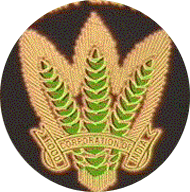 |
| |
Central Warehousing Corporation (CWC) |
 |
- Provides scientific storage and handling facilities.
- Offers consultancy services/ training for the construction of warehousing infrastructure to different agencies.
- Import and export warehousing facilities.
- Provides disinfestation services.
Address to contact:
4/1 Siri Institutional Area Opp.
Siri Fort New Delhi-110016
website: www.fieo.com/cwc/ |
| Agricultural and Processed Food Products Export Development Authority (APEDA) |
|
- Development of scheduled agriculture products related industries for export.
- Provides financial assistance to these industries for conducting surveys, sensibility studies, relief and subsidy schemes.
- Registration of exporters for scheduled products.
- Adapting standards and specifications for the purpose of export of scheduled products.
- Carrying out inspection of meat and meat products for ensuring the quality of such products.
- Improving the packaging of the scheduled products.
- Promotion of export oriented production and development of scheduled products.
- Collection and publication of statistics for improving marketing of scheduled products.
- Training in the various aspects of industries related to the scheduled products.
Address to contact:
4/1 Siri Institutional Area Opp.
Siri Fort New Delhi-110016
website: www.fieo.com/cwc/ |
 |
| |
National Co-operative Development Corporation (NCDC) |
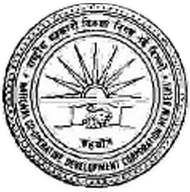 |
- Planning, promoting and financing programmes for production, processing, marketing, storage, export and import of agricultural produce.
- Financial support to primary, regional, State and National level co-operative marketing societies is provided towards
- Margin money and working capital finance to augment business operations of agricultural produce.
- Strengthening the share capital base and
- Purchase of transport vehicles.
Address to contact:
4, Siri Institutional Area, New Delhi-110016
website: www.ncdc.nic.in |
| National Agricultural Cooperative Marketing Federation of India Ltd. (NAFED) |
|
- Central nodal agency of Government of India for procurement of pulses, millets and oilseeds under price support scheme.
- It undertakes sale of pulses and oilseeds procured under PSS and import.
- Provide storage facilities.
- Consumer Marketing Division of NAFED serves the consumers in Delhi through the network of its retail outlets (NAFED BAZAR) by providing consumer items of daily need. Processing of pulses, fruits, etc for internal trade.
Address to contact:
Nafed House, Sidhartha Enclave, New Delhi – 110014
Website: www.nafed-india.com |
 |
| |
Director General of Foreign Trade, (DGFT) |
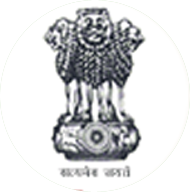 |
- Provides guidelines / procedure of export and import of various commodities.
- Allot import-export code number (IEC No) to the exporter of agricultural commodities.
Address to contact:
Udyog Bhavan,
New Delhi.
Website: www.nic.in/eximpol |
| Director General of Commercial Intelligence & Statistics (DGCIS) |
|
Collection, compilation and dissemination of marketing related data i.e. export-import data, inter-state movement of foodgrains etc.
Address to contact:
1, Council House Street
Kolkata -1 |
 |
| |
Directorate of Economics and Statistics (DES) |
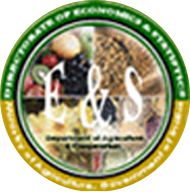 |
- Compilation of agricultural data for development and planning.
- Dissemination of market intelligence through publication and internet.
Address to contact:
Shastri Bhavan,New Delhi
Website: www.agricoop.nic.in |
| Agricultural Produce Marketing Committee (APMC) |
|
- Provides market information on arrivals, prevailing prices, despatches etc
- Provides market information of adjoining / other market committees.
- Arranges training, tours, exhibitions etc.
Address to contact:
Shastri Bhavan,New Delhi
Website: www.agricoop.nic.in
|
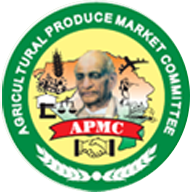 |
| |
State Agricultural Marketing Boards (SAMBs) |
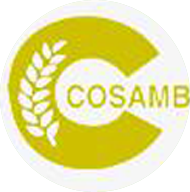 |
- Implementation of the regulation of marketing in the state.
- Provide infra-structural facilities for the marketing of notified agricultural produce.
- Provide grading of agricultural produce in the markets.
- To co-ordinate all the market committees for information services.
- Provide aid to financially weak or needy market committees in the form of loans and grants.
- Eliminate malpractices in the marketing system.
- Provides marketing related information to co-ordinate all the market committees in the state.
- Arrange or organise seminars, workshops or exhibitions on subjects relating to agricultural marketing and farmers training programme on various aspects of agricultural marketing. Some of the SAMBs are also promoting agro-business.
|
| Kisan Call Centers |
|
- Provides expert advise to the farmers.
- These centers will operate through toll free telecom lines throughout the country.
- A country wide common four digit number 1551 has been allocated to these centers.
(New Delhi, Mumbai, Chennai, Kolkata, Hyderabad, Banglore, Chandigarh and Luknow) |
 |
| Agricultural Marketing-Web links |
|
|
| Top |
| Marketing-DO'S and DONT'S |
| DO'S |
- Harvest the paddy at proper time of maturity.
- Dry paddy in sheds for optimum time period.
- Threshing and winnowing on cemented (Pucca) floor.
- Market the paddy/rice after grading to get higher return.
- Get the market information regularly from www.agmarknet.nic.in website, newspaper, T.V., concerned APMC offices etc. before marketing the produce.
- Avail the facility of futures trading and forward contracts to avoid price risk arising due to wide fluctuation in rice prices.
- Take the benefits of contract marketing to insure better price of the produce.
- Store the paddy/rice during post harvest period and sell it when prices are favourable.
- Avail the facility of Price Support Scheme during glut situation.
- Use effective, efficient and proper post harvest technology and processing techniques to avoid post harvest losses.
- Select the shortest and efficient marketing channel to get higher share in marketing.
- Select the cheapest and convenient mode of transportation from the available alternatives.
- Use proper packing for paddy/rice to protect the quality and quantity during transit and storage.
- Transport paddy/rice in bags which minimises grain losses.
|
| DONT 'S |
- Delay in harvesting results in grain shedding and cracking of rice in the husk.
- Don’t do dexcessive drying of grains for preventing breakage of grains during milling.
- Don’t sell paddy/rice without grading, which fetches lower prices.
- Don’t market the produce without collecting information regarding price trend etc.
- Don’t sell the produce at fluctuating prices or in a glut situation.
- Don’t produce paddy without assessing and assuming its future demand.
- Don’t sell the paddy/rice during immediate post-harvest period, because usually the prices prevail low due to more arrivals.
- Don’t store paddy/rice at unscientific storage, which leads to qualitative and quantitative deterioration of grains.
- Don’t sell paddy/rice to local traders or itinerant merchant during glut situation.
- Don’t select marketing channel, which is longer, at the cost of producer’s share.
- Don’t select any mode of transport, which causes losses, and incur more expenses on transport.
- Don’t keep any lacunae in export procedure?
|
| Top |
| Market Channels |
The following are the important marketing channels existing in the marketing of paddy/rice.
- Producer - Miller - Wholesaler - Retailer - Consumer
- Producer - Commission Agent - Miller - Wholesaler - Retailer - Consumer
- Producer - Itinerant Merchant - Miller - Wholesaler - Retailer - Consumer
- Producer - Wholesaler (Paddy) - Miller - Wholesaler(Rice) - Retailer - Consumer
- Producer - Miller - Retailer - Consumer
- Producer - Miller - Consumer.
- Producer - Procuring Agency (FCI/State Govt./Co-operatives) -Miller (FCI/Co operatives/Private) - Distributing Agency (State Govt.) - Fair price/Ration shop -Consumer.
Criteria for selection of channels
- There are many marketing channels involved in marketing of paddy/rice. The following are the criteria for the selection of efficient marketing channels.
- The channel, which ensures reasonable return to producer, is considered to be good or efficient.
- Transportation cost in that channel.
- Commission charges and market margins received by the intermediaries, such as trader, commission agent, wholesaler and retailer.
- Financial resources.
- The shorter channel with minimum market cost should be selected.
|
Top |
| Export and Import |
Export Procedures:
- Registration with RBI and obtain RBI code number. {Apply in prescribed form (CNX) to obtain registration No. from RBI and the number is to be quoted on all export papers}.
- Importer – Exporter code (IEC) number to be obtained from Director General of Foreign Trade (DGFT).
- Register with Agricultural and Processed Food Products Export Development Authority (APEDA) to obtain registration cum membership certificate.
- This is required to obtain permissible benefits from the Government.
- For Basmati rice export RCAC (Registration Cum Allocation Certificate) is issued by APEDA. (Non-Basmati rice can be freely exported; no RCAC is required, only exporter has to register with APEDA).
- For RCAC, exporter will be required to submit the export details and contract along with fee.
- RCAC is valid for 3 months, after that revalidation is required. RCAC is a statutory document and no duplicates can be issued after the misplacement of the original one.
- Exporter then procures their export orders.
- Quality of the produce is to be assessed by the inspecting agency and a certificate is issued to this effect.
- Produce is then shifted to port.
- Obtain marine insurance cover from any insurance company.
- Contact clearing and forwarding (C. & F.) agent for sorting the produce in godowns and to get the shipping bill for allowing shipment by the Custom Authority.
- Shipping bill is submitted by C. & F. Agent to custom house for verification and verified shipping bill is given to the shed superintendent to obtain carting order for export.
- After loading into ship, a mate’s receipt is issued by captain of ship to the superintendent of the port, who calculates port charges and collects the same from the C. & F. Agent.
- After the payment, C. & F. Agent takes mate’s receipt and requests port authority to prepare bill of loading to the respective exporter.
- Then C. & F. Agent sends the bill of loading to the respective exporter.
- After receiving the documents, exporter obtains a certificate of origin from chamber of commerce, stating that the goods are of Indian origin.
- Importer is informed by exporter regarding date of shipment, name ofvessel, bill of loading, customer‘s invoice, packing list etc.
- Exporter submits all documents to his bank for verification and bank verifies the papers against original letter of credit.
- After verification, bank sends documents to foreign importer to enable him to take delivery of produce.
- After receiving papers, importer makes payment through bank and sends the GR form to RBI, an evidence of realization of export proceeds.
- Exporter now applies for various benefits from duty drawback schemes.
|
| Exporters |
| Sl.No |
Exporters |
| 1. |
Kumaraguru Hitec Rice Industries
Exporters of Boiled Rice, Parboiled Rice, Ponni Rice, Raw Rice, Steamed Rice and Polished Rice.
Address: 116, Chennimalai Road, Kangayam, Erode India
Website : http://www.kumaraguruhitecriceindustries.com |
| 2. |
SVM Agro Foods
Exporters of Ponni Rice, Idli Rice, Rosematta Rice, Red Rice, Raw Rice and Steam Rice, Indian Rice.
Address: 39, Point Caree Street, Nellithope, Pondicherry India
Website : http://www.nelmani.com |
| 3. |
C L INTERNATIONAL
Exporters of Basmati Rice, Non Basmati Rice.
Address: 43/41 West Punjabi Bagh, New Delhi India
Website : http://www.1121basmatirice.com |
| 4. |
Boom Buying Pvt. Ltd. - India
Exporters of rice.
Address: E-986, C. R. Park., New Delhi India
Website : http://www.boombuying.net |
| 5. |
Jeni Rich India Agri Trading Company
Exporters of De Oiled Rice Bran
Address: 139, C.G.E. Colony, Tuticorin India
Website : http://www.jenirich.com |
| 6. |
GULAM & GULAM
Exporters of Rice
Address: BMC 3 & 4, P. D Mello RD, Opp. Ghadiyal Godi, Mumbai India
Website : http://www.gulsafe.in |
| 7. |
Hardcore Corporation
Exporters of rice, basmati rice, non basmati rice, masoori rice.
Address: Hardcore Corporation, Office No. 4, Chordiya Sankul, Nasik Road, Nasik- 422101 India
Website : http://www.hcagroexports.com |
| 8. |
Lakshmi Rice & Dall Mills
Exporters of Basmati Rice, Non Basmati Rice.
Address: 79, Grain Market, Ladwa 136132, India India
Website : http://www.rice-exporter.com |
| 9. |
Guru Nanak Rice Mills
Exporters of Basmati Rice, Indian Basmati Rice, Long Grain Basmati Rice, Polished Rice, Rice Grain, Short Grain Basmati Rice, Medium Grain Basmati Rice, Dry Basmati Rice, Golden Basmati Rice, Aromatic Basmati Rice, Super Basmati Rice, White Basmati Rice, Cooking Rice and Plain Basmati Rice.
Address: Village Chack Mohhamad, R. S. Pura, Jammu India
Phone(s) : 91-192-3274143 Mobile : +91-9419101452 Fax(s) : 91-192-3274143
Website : http://www.halrice.net |
| 10. |
Jothi exports and imports
We Provide Agro Product Export Service.
Business Type : Service Providers / Manufacturer / Wholesale Suppliers / Exporters / Importer
Address: 305, Eswaran Vattam, Aneri, Rachamangalam, Vellore (DT), Tirupattur, Tamil Nadu India
Website : http://www.jothiexports.in |
| 11. |
K & B Exports
Exporters of Basmati Rice
Business Type : Exporters / Manufacturer / Wholesale Suppliers
Address: No. 70, 7th Street, Annai Sivagami Nagar, Ennore, Chennai, Tamil Nadu India
Website : http://www.kandbexports.com |
| 12. |
F G H Enterprises
Exporters of rice, basmati rice, long grain, par boiled rice, non basmati rice
Business Type : Exporters
Address: 9, First Block, Kannadasan Nagar, Chennai, Tamil Nadu India
Website : http://www.fghenterprises.com |
| 13. |
Caro Impex
Exporters of basmati rice, 1121 basmati rice, long grain basmati rice, premium basmati rice, pusa basmati rice, super basmati rice.
Business Type : Exporters / Manufacturer / Wholesale Suppliers
Address: 1, Jaycee Flats , Balaji Nagar 1st Street, Nanganallur, Chennai, Tamil Nadu India
Website : http://www.caroimpex.com |
| 14. |
Sri Rajasthan Traders
Exporters of basmati rice, pusa basmati rice, supreme quality basmati rice, indian rice.
Business Type : Exporters / Wholesale Suppliers / Manufacturer
Address: 10, Ayalur Muthia Mudali Street, Kondithope, Chennai, Tamil Nadu India
Website : http://www.srirajasthantraders.com |
| 15. |
Rasi
Exporters of Rice.
Business Type : Exporters
Address: Gopal Nagar,Tirupur, Tamil Nadu India |
| |
Top |
| CODEX Alimentarius : |
Introduction :
C O D E X A L I M E N T A R I U S is about safe, good food for everyone - everywhere. The C O D E X A L I M E N T A R I U S international food standards, guidelines and codes of practice contribute to the safety, quality and fairness of this international food trade. Consumers can trust the safety and quality of the food products they buy and importers can trust that the food they ordered will be in accordance with their specifications.
The Codex Alimentarius Commission, established by FAO and WHO in 1963 develops harmonised international food standards, guidelines and codes of practice to protect the health of the consumers and ensure fair trade practices in the food trade. The Commission also promotes coordination of all food standards work undertaken by international governmental and non-governmental organizations.
Codex standards are based on the best available science assisted by independent international risk assessment bodies or ad-hoc consultations organized by FAO and WHO. While being recommendations for voluntary application by members, Codex standards serve in many cases as a basis for national legislation.
Codex process - in many cases assisted by the Codex Trust Fund, which strives to finance - and train - participants from such countries to enable efficient participation. Being an active member of Codex helps countries to compete in sophisticated world markets - and to improve food safety for their own population. At the same time exporters know what importers demand, and importers are protected from substandard shipments. International governmental and non-governmental organizations can become accredited Codex observers to provide expert information, advice and assistance to the Commission.

|
|
.png)
.png)
.png)
.png)
.png)
.png)












